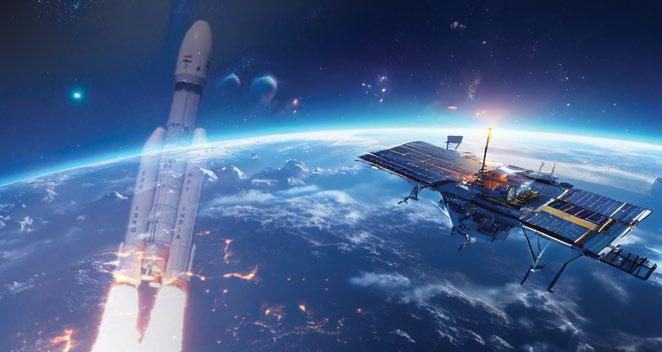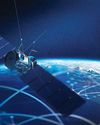
The Government of India’s recent approval of key upcoming missions for the Indian Space Research Organisation (ISRO) marks a significant step in solidifying the nation’s growing presence in global geopolitics. The decision, involving a total investment of USD 2.7 billion (Rs 22,750 crore), highlights the country’s commitment to advancing its space capabilities.
This development had been anticipated for some time. The September issue of Voice&Data provided an in-depth analysis of ISRO’s upcoming missions and their potential impact. With the formal approval of the Union Cabinet on 18 September, these missions have gained even greater importance in light of the current global and national geopolitical landscape.
SPACE MISSIONS AT A GLANCE
India’s major space endeavours can be divided into four main areas: the moon mission—Chandrayaan, the space station project—Bharatiya Antariksha Station, the Next Generation Launch Vehicle (NGLV) rocket, and the manned space mission—Gaganyaan.
Each of these missions is expected to play a crucial role in amplifying India’s achievements in space exploration. India is building on a legacy that includes the 2013 Mars Orbiter Mission (Mangalyaan), which made history as the world’s most affordable interplanetary mission. Compared to the USD 671 million (Rs 5,600 crore) spent by NASA on a similar mission, ISRO’s Mangalyaan cost a mere USD 53 million (Rs 450 crore), based on current exchange rates.
Mangalyaan was not only significant for India’s own space exploration efforts but also demonstrated to the world the possibility of conducting cost-effective space research. The mission underscored India’s ability to contribute to global understanding of space, science, and the search for life beyond Earth.
This story is from the October 2024 edition of Voice and Data.
Start your 7-day Magzter GOLD free trial to access thousands of curated premium stories, and 9,000+ magazines and newspapers.
Already a subscriber ? Sign In
This story is from the October 2024 edition of Voice and Data.
Start your 7-day Magzter GOLD free trial to access thousands of curated premium stories, and 9,000+ magazines and newspapers.
Already a subscriber? Sign In

Cloud endoscopy breakthrough for real-time remote diagnostics
NTT Corporation and Olympus Corporation have demonstrated the feasibility of real-time remote diagnosis and treatment using the world's first endoscopy system powered by IOWN All Photonics Network (APN) technology. The breakthrough experiment successfully processed endoscopic videos on a server located 150 km away, overcoming latency issues and enabling seamless diagnostics.

Rise of the homegrown telecom infrastructure
Telecom infrastructure, once led by US and European designs and made in China, iS Now increasingly designed and manufactured in India, marking a pivotal shift

Balancing innovation and regulation for a connected future
Crafting agile governance ensures equitable, sustainable growth, blending innovation with societal protection in a hyper-connected digital age

Driving transformative shifts towards digital leadership
India's telecom sector, driven by 5G, bold policies, and cross-sector collaborations, is paving the way to global digital infrastructure leadership

Scaling AI in data centres for the next big leap
GPU-optimised data centres are vital for advancing India’s Al ambitions, enabling it to meet growing computational demands and maintaining global competitiveness

Bridging gaps with AI's transformative communication wave
AI-driven real-time communication reshapes industries, enhancing connections, operational efficiency, and immersive experiences in a digital-first world

Weaving the fabric of CDN efficiency
Local peering transforms CDNs by cutting latency, boosting reliability, and ensuring seamless, high-speed delivery for modern digital experiences

From orbit to opportunity: Redefining connectivity
India's satcom sector is set to revolutionise connectivity through hybrid networks, bridging the digital divide and driving innovative technologies for growth

Orchestrating telecom's smart future
AI and automation can revolutionise telecom networks, crafting intelligent, selfoptimising systems to meet future demands and deliver seamless connectivity

Unlocking the true potential of IoT
Specialised silicon and 5G are set to redefine loT's future, driving AloT innovations that deliver real-time intelligence, security, and seamless connectivity